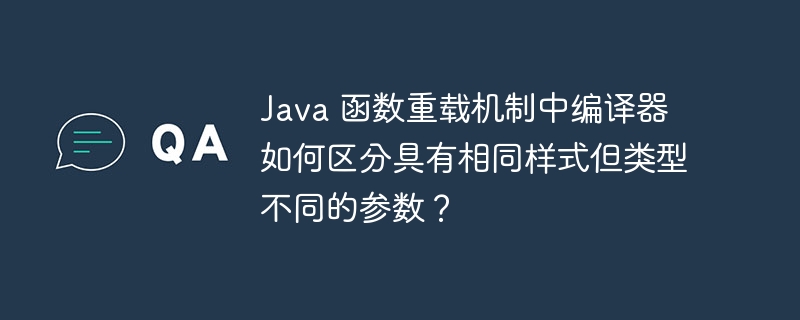
The way the compiler distinguishes overloaded functions: through signature, that is, the type of each function parameter. Even if the function name and number of parameters are the same, the compiler can tell them apart as long as the parameter types are different.

In the Java function overloading mechanism, the compiler distinguishes parameters with the same name of different types
Overview of function overloading
Java function overloading allows the creation of multiple functions with the same name but accepting different types or different numbers of parameters. This improves code readability and maintainability.
How does the compiler differentiate?
The compiler distinguishes between overloaded functions by signing the type of each function parameter. Even if functions have the same name and number of parameters, the compiler can tell them apart if the parameters are of different types.
Practical Case: Calculating Area
Consider a function that calculates the area of different shapes:
public class ShapeCalculator {
public double calculateArea(Shape shape) {
return shape.getArea();
}
public double calculateArea(Rectangle rectangle) {
return rectangle.getLength() * rectangle.getWidth();
}
public double calculateArea(Circle circle) {
return Math.PI * circle.getRadius() * circle.getRadius();
}
}In this example, we create a function for different shape types There are three overloaded calculateArea functions: Shape, Rectangle, and Circle. Although the function names are the same, the compiler can distinguish them based on the different types of shapes passed in.
Compile-time type checking
The compiler uses static type checking to verify the validity of function calls. It checks whether the parameter types of the function call match the parameter types of the function signature. If there is a mismatch, the compiler will report a compilation error.
Advantages
Function overloading provides several advantages:
The above is the detailed content of How does the compiler differentiate between parameters with the same style but different types in Java's function overloading mechanism?. For more information, please follow other related articles on the PHP Chinese website!
